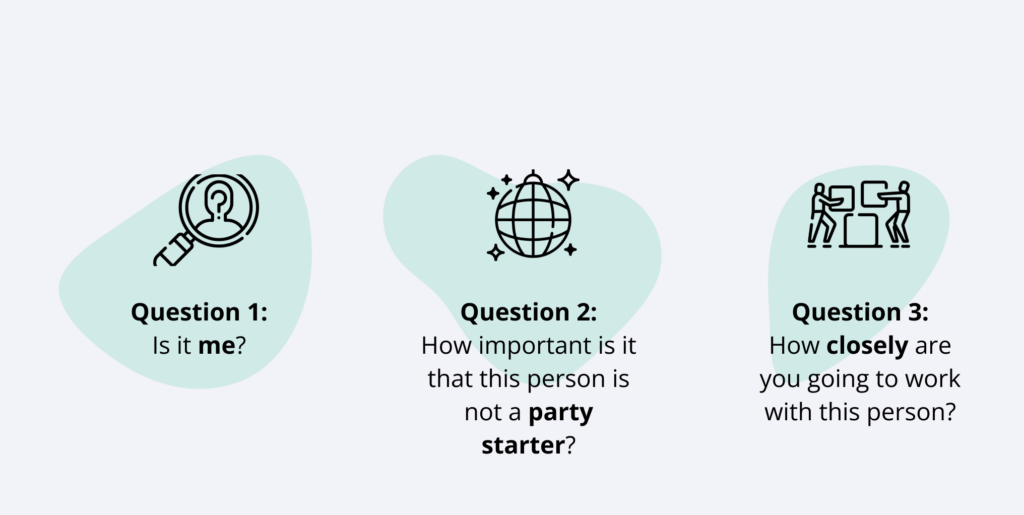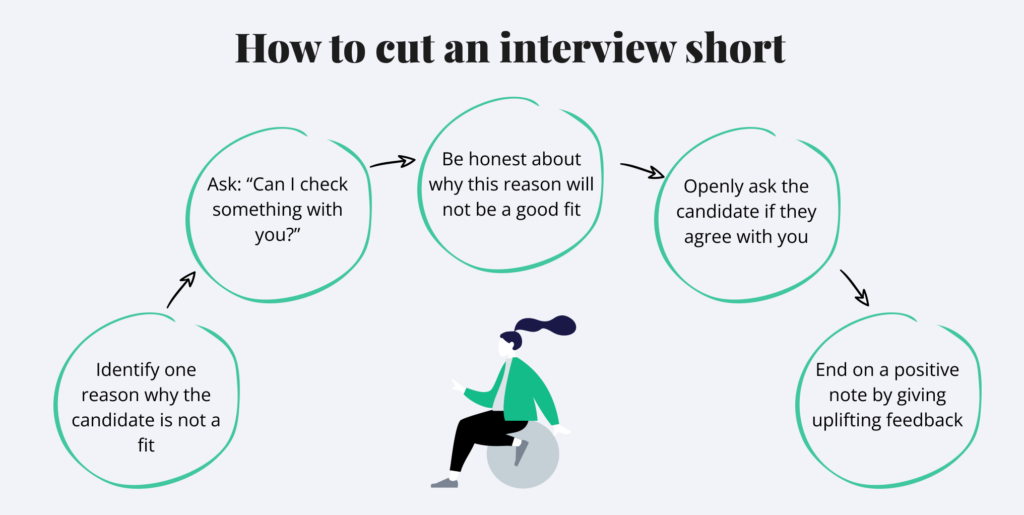I’m pretty sure that you were stuck in the following situation at least once in your work life: you invite a candidate whose skills and personality look great on paper for an interview. But soon after you sit across from each other, you realize that the conversation is draining your energy!
I found out that fighting a yawn is a common issue among hiring managers, often leading to hastily labelling a candidate as ‘boring’. I have done over 3000 interviews myself and despite enjoying doing them, I have also experienced this sometimes!
But here’s the truth: as an interviewer, it’s your role to create an engaging conversation. And if you don’t, you’ll probably end up with a team full of exciting and extroverted personalities but may miss out on some serious talent that a less extroverted person may have. Remember that interviews are a strongly scoped setting, so you must be able to make fair judgments despite that. So, whenever you think someone is boring, there are a few considerations you can take that will help you make better decisions. Start asking yourself:

Step 1: Is it me?
Yes, it usually is! Boredom is your brain’s warning sign telling you that you’re not really engaged with your environment. In other words, you feel like you’re doing something that’s not meaningful to you. And you can influence this. So as the interviewer, you have to pick up the responsibility to create engagement.
Perhaps the culprit for your boredom is sluggishness. Did you have a bad night’s sleep? Or did you go all out during your morning workout routine? Could it be that you thought it was a good idea to plan an interview directly after lunch while you’re in a food coma?
All of these temporary energy drainages impact your mood and perception – which in turn influences your candidate.
But when you find yourself in an interview, how can you get your energy back up? The best way is to spark your candidate’s ambitions. Talking about their dreams and wishes usually makes people light up. If they are passionate about something, their personality will automatically become more engaging. Here are some ideas for what you could ask:
→ If you had all the money in the world, what would you like to achieve?
→ Why did you get into this field of work? What keeps you here today?
→ If you’re not working, what do you love to do?
→ Or simply: What are you passionate about in life?
Or dare to go for more unorthodox solutions: switch up the setting of the interview and incorporate movement into it. Sitting at a table in an office while talking to someone is a very stagnant way of meeting someone. Feeling bored can be a signal that either your blood is flowing down to your toes, and staying there, or that the walls are closing in on you because you feel like you will be spending the rest of the day inside. In that case, decide to go for a small walk together with your interviewee, grab a coffee or switch seats with them – and if you really want to shake things up, play table tennis with them for 5 minutes if you have one in the office.
Step 2: How important is it that this person is not a party starter?
This really depends on the job. Is a key personality trait for that job to be ‘sparkling,’ ‘energetic’ or ‘charismatic’? No? Then focus on the traits that you actually have to assess. Are they capable of doing the job you’re asking of them on a daily basis?
Focus on real-life situations this person will encounter once they start working and you’ll immediately be more engaged with them because you will want to know how they would handle those scenarios.
This is an important reason why you should be strongly prepared for an interview. You need to know what skills are needed for the position a candidate applies to, how those skills are used, and also whether your candidate can bring up some real-life examples in which they had to apply those skills previously. In case you are not entirely certain how to do that, some surefire ways to be prepared for the interview is to run a scorecard workshop and ask targeted questions with the help of the STAR method.
Step 3: How closely are you going to work with this person?
Boredom is very subjective: if your candidate comes across as dull, it doesn’t mean that other people such as your team members will feel bored by them. By now, you should have tried out several things to 1) explore your possibilities for engaging with the person and 2) yield some insights about the candidate and their professional skills.
Generally speaking, boredom lies in the eyes of the beholder. There are ways to “shake yourself awake” by adding some ‘spice’ to the interview. If the candidate is motivated, then use your curiosity to get engaged and form good decisions – especially if you are not required to work with them one-on-one every day. That also means that the people who do have to work with them need to have an overall good impression of the candidate – more so than you do. So, park this feedback, evaluate your candidate, and share your insights with your colleagues. They should tell you if they’re looking forward to working with the candidate.
Take responsibility
Finally, experiencing boredom can ultimately also be a lack of engagement from the candidate for the job. This is not an uncommon phenomenon, considering that one in five European employees express low levels of satisfaction with their job. So, one thing that you would immediately detect when interviewing a candidate is their lack of motivation which can manifest itself as detachment or a lack of enthusiasm. Some tell-tale signs are the candidate giving short answers, lacking reciprocity and displaying indifference about their current job or your vacancy.
If you’re convinced this person does not really fit the job, you can cut the interview short in a respectful way. Believe me, everyone involved will understand and appreciate an honest and authentic decision.

That being said, I genuinely think it’s your responsibility to turn on your curiosity button and approach the candidate in a fairly personal and conversational manner. After all, an interview is not an interrogation. Genuine interest results in reciprocated interest.

